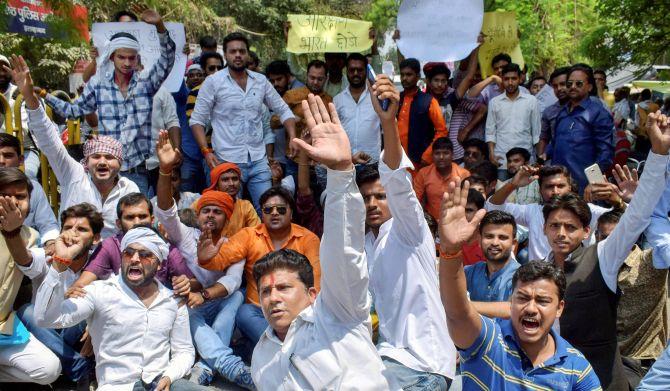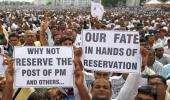Experts have said the reservation provision will set unrealistic goals for organisational hiring, but will also reduce productivity by reducing the available talent pool to a few people within the state.

A manufacturer and wholesaler of motorcycle parts has filed a please in the Punjab and Haryana high court against the Manohar Lal Khattar government’s law mandating 75 per cent quota for locals in private jobs with a monthly salary cap of Rs 50,000.
The petition, filed by Rohtak-based AK Automatics, states that the domicile law “is illegal, arbitrary and ultra vires/unconstitutional and cannot stand the legal scrutiny as it violates the principles to meet the requirement under Article 14, 15, 16(2) & 16 (3), 19, 21 of the Constitution of India”. The HC has accepted the petition and hearing is likely next week.
Private sector has opposed the new law. Experts have said the reservation provision will set unrealistic goals for organisational hiring, but will also reduce productivity by reducing the available talent pool to a few people within the state. Private sector jobs and remunerations are “purely based on skills” and people have a Constitutional right to take up jobs in any part of India, the petition noted.
The petition says the new Act is “nothing but an act of unfair competition between deserving employees and local residents of Haryana acclaiming to have a right as an employee on the basis of local residence is nothing but a sheer abuse of process of law” as it goes against the provisions of the Constitution. According to industry, Haryana produces 50 per cent of India’s passenger vehicles, 60 per cent of motorcycles, and 11 per cent of India’s tractors.
Of the total 250 original equipment manufacturers, 50 are present in Haryana and the state has a strong base of 120,000 small and medium enterprises, which provide a network of auto ancillary companies.
Further, the IT and IT-enabled services sector contributes about 10 per cent of Haryana’s GDP and more than 50 per cent of the states’ exports. Gurugram is the world’s BPM capital, employing about 5 per cent of the global BPM workforce and 13 per cent of total Indian BPM workforce.










